Search Results
Showing results 381 to 400 of 1005
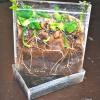
CD Greenhouse
Source Institutions
In this activity, learners plant seeds and watch them sprout and grow inside a CD case.
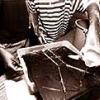
Squeeze the Stream
Source Institutions
In this activity related to flight, learners build a tiny stream channel to investigate how fluids (air and water) change speed as they flow between and around objects.
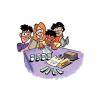
Developing Tests to Distinguish Between Similar-Looking Unknowns
Source Institutions
Learners identify an unknown liquid by comparing its behavior to known liquids. Learners drop liquids onto different surfaces and see how the liquids behave.
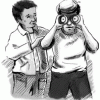
Seeing Is Believing
Source Institutions
This activity is designed to accompany the PBS documentary about African-American chemist "Percy Julian: Forgotten Genius." Learners look through two cups with small holes in them to simulate what it'
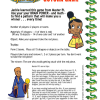
Gotcha Game
Source Institutions
In this Cyberchase activity, learners play a simple game using 15 paper dragons (or any 15 objects). One of the 15 dragons is red. Learners try to make their opponent take the red piece.
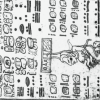
Breaking the Code: Mayan Math
Source Institutions
This is a lesson plan for an activity in which learners, playing the role of archeologists, use math concepts about number bases to decipher the Dresden Codex, an ancient Mayan document.
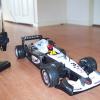
Out of Sight: Remote Vehicle Activity
Source Institutions
In this robotics activity, learners drive a remote-controlled car through a course to learn the challenges faced while trying to operate a planetary rover.
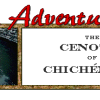
Solving Dissolving
Source Institutions
The Sacred Cenote at Chichén Itzá is a sink hole, or well, containing groundwater. In this activity, learners create their own cenote using chalk, limestone, acids, and rain water.
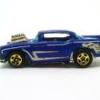
Newton's in the Driver's Seat
Source Institutions
In this playful physics activity (page eight of the pdf), learners use toy cars to explore how speed and weight affect the results of collision.
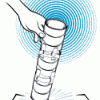
CANdemonium: Make a Drum Out of Recycled Cans
Source Institutions
With three cans and some tape, make a drum that you bonk down on any surface to produce a variety of sounds. This activity also teaches you about pitch, vibration, and frequency.

Fantastic Plastic
Source Institutions
In this activity, learners investigate the properties of plastic bags. Learners find out what happens when they slowly push a pencil through a plastic bag filled with water.
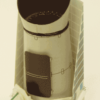
Kepler Paper Model
Source Institutions
In this activity, learners build a paper model of the spacecraft and photometer (telescope) used during NASA's Kepler Mission.

Sound Sandwich
Source Institutions
With a straw, two craft sticks, and some rubber bands, construct a noisemaker called a Sound Sandwich and explore how vibration produces sound.
Balloon Surprise
Source Institutions
In this activity, learners discover a trick to release the air out of a balloon without popping it.
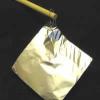
Weather Stations: Winds
Source Institutions
In this activity, learners use a toaster to generate wind and compare the appliance's heat source to Jupiter's own hot interior. Learners discover that convection drives wind on Jupiter and on Earth.
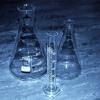
Rates of Change: Bottles and Divers
Source Institutions
In this math lesson (page 2 of the PDF), learners use bottles of various shapes to explore the abstract concept of rate of change.

Football
Source Institutions
In this math activity (Page 10 of the Play Ball! PDF), learners play a game of "football" and analyze the results of the game.
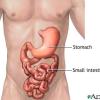
Ziploc Digestion Simulator
Source Institutions
In this biology activity, learners recreate the process of digestion in a zip lock bag. A bit of soda pop added to some crumbled crackers approximates how acids in the stomach dissolve food.
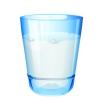
Frosty Glasses
Source Institutions
In this activity, learners explore why frost forms. They create their own frost using a solution of ice water and salt in a glass.

Vibrating Pennies
Source Institutions
Conduct a simple experiment to explore how temperature changes can make things expand or contract.
